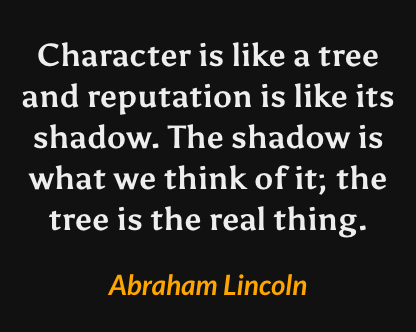Character
The origin of the word character can be traced to the Greek word for an etching tool. In essence, our character is etched into us as we grow and develop. Following the etymology, we can describe character as the distinguishing mental and moral qualities that define an individual’s personality.
Given the immense responsibilities of leadership in uncertain times, it is the character of the leader that most influences their success. In Ronald A. Heifetz’s seminal work, “Leadership Without Easy Answers,” the author argues that character plays a crucial role in leadership by underpinning the ethical, emotional, and relational aspects of the work. Leaders with strong character are better equipped to build trust, navigate complex challenges, empower others, and bring people together. Leaders with a strong moral core inspire and motivate others to follow.
The bigger the job, the more the character of the leader is going to matter. Leading an organization or a country is relatively easy when things are going well. Just sit back and bask in the glory and accept the praise. But inevitably the shit is going to hit the fan and the leader is going to be tested. That is when the true character of the leader is revealed. Do they deflect, obfuscate, blame, and look for shortcuts? Or do they take accountability, deliver tough messages, call for shared sacrifice, and roll up their sleeves to work through the problem? I know which one I would rather follow.
There are always multiple factors to consider when selecting a leader, but if there are trade-offs to be made, I will be making my choice based on character. It is foundational to everything else a leader does. Leaders with character demonstrate empathy, treat others fairly, and show the type of respect that can unify a diverse population. I am looking for someone that I can trust to make the right decisions when the answers are not easy. I want someone with character in that job.





